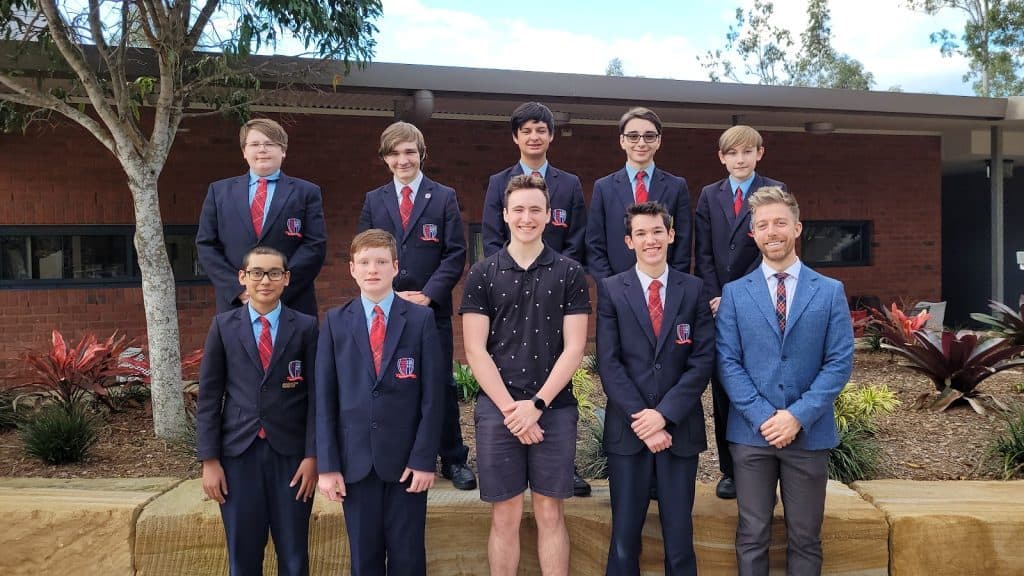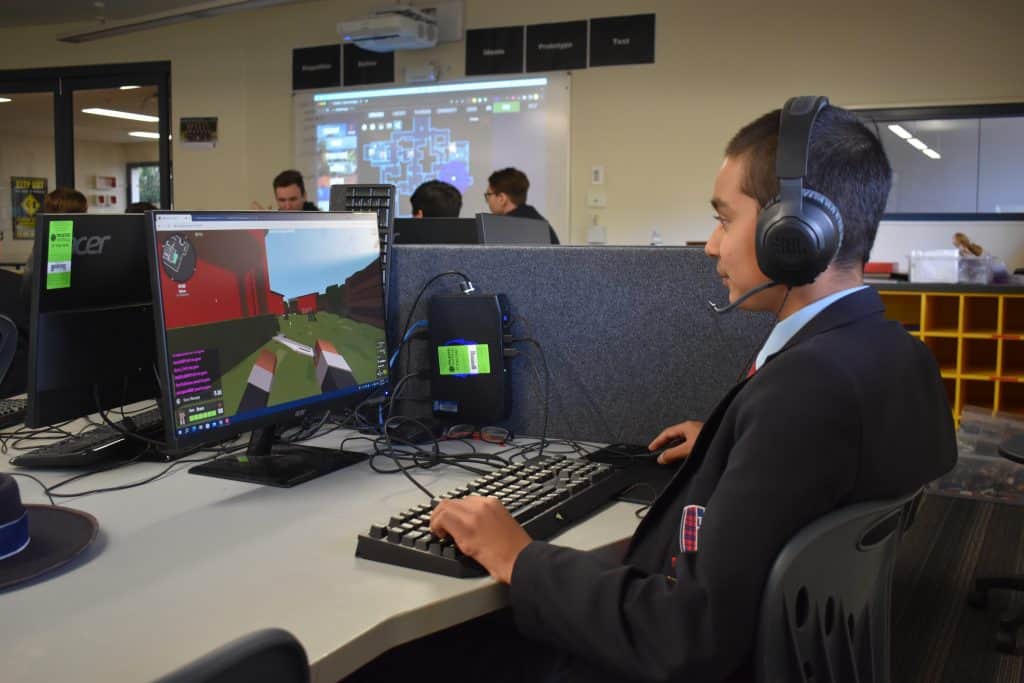
The Springfield Anglican College (TSAC)’s school esports team “Titans” brought home bronze in an Overwatch 2 video game tournament last month – a local example of a fast-growing worldwide sport.
Taking place on September 2, the High School Esports Overwatch 2 tournament concluded with the Titans team securing a third place finish after virtually battling against schools including Morayfield State High School and West Moreton Anglican College.
The team comprises senior students and is led by Izak Jamieson, a recent TSAC graduate.
Although the Titans beat the players from Morayfield earlier in their double-elimination bracket, Morayfield knocked them out in the semifinal – before Forest Lake State High School took out the top prize in the exciting final match.
Esports – short for electronic sports – involves high-level competitions among players of competitive multiplayer video games who face off at major regional, national, and international tournaments – just like any other physical sport.
Roles to play in education

TSAC is one of many Australian schools to recognise the educational value of esports competitions, following its rapid rise in popularity and influence across the globe.
Since the introduction of the TSAC Esports program over six years ago, it has since grown to include two Secondary teams – the Titans and Spartans – and a Primary Esports team – the Arcadians.
They compete in the High Schools Esports League under the QUT Sport banner, joined by 40 other schools competing across a range of competitive and strategic video games.
Former TSAC student and anti-cyberbullying advocate Izak Jamieson has since returned to the College to coach the Titans, and said esports was more than just gaming.
“It is comparable to a real team sport… it has grown exponentially in recent years, with professional leagues, tournaments, and sponsorship deals now rivalling traditional sports,” he said.
“During training, we review past games, do drills to enhance students’ reaction times, develop game plans, and work on their leadership and communication skills. It’s exciting to see the program continue, year after year, and students enjoying playing within a safe team environment.”
Academic pathways
Principal Steven Morris said esports now formed part of the school’s holistic approach to education.
“We encourage students to pursue their interests and passions, which help them develop as well-rounded individuals, capable of carving out exciting and ambitious pathways within our ever-evolving world,” Mr Morris said.
Aside from professional gaming, potential career pathways include game development, sports management, event management, commentating, and production, broadcasting and streaming.
There is also increasing evidence of its positive impact on students when integrated into the educational environment.
The TSAC Esports program complements the College’s academic program, Mr Morris explained.
“Esports has been an effective way for us to harness students’ enthusiasm for gaming and channel it towards building students’ teamwork, critical thinking, strategic planning, and problem-solving abilities.
“Students can also incorporate elements of esports – such as data analysis, sports psychology, game design, and media and broadcasting – into a number of different curriculum subjects.”

Countering cyberbullying

Izak, 19, from New Beith, has raised his profile in the last year, being interviewed on news programs, speaking at various conferences and panels, and receiving recognition from elected officials.
He is on the government’s eSafety Commissioner Youth Council – a council of 24 young people aged 13 to 24, set up to provide young people a voice about online safety policy.
He has also since attended a conference in Sydney to speak on a panel – in front of lead executives from large tech companies (Google, Microsoft, Meta, Twitter) – about how youth can play a larger role in the design of safer online and social media spaces.
In July, Jordan MP Charis Mullen presented Izak with a “Jordan Greats” Queensland Day Award.
He has also set up his own company called Queensland Esports, which produces and coordinates youth esports competitions.
“I teach them the things that I’ve learned from these opportunities – to help protect them from cyberbullying and other harms online – because gaming can be brutal sometimes for cyberbullying and harassment,” Izak explained.
Spartans and Arcadians

Year 11 student Oliver Walsh has been the assistant coach for the TSAC Junior team, the Spartans, for the past two years.
He said esports are a fantastic way to “test yourself” and grow by learning to work with different people.
“I love making connections with the younger kids and supporting them as they grow as players and as a team,” Oliver said.
“I am really proud to see our teams work together and compete while still honouring our Esport team values of respect, reasoning, responsibility and resilience.”
Mr Ben Daly coaches the team on the Primary Campus, the Arcadians.
“We started the Esports program for our primary students in 2021,” Mr Daly said.
“We experienced so much interest that we need to establish two teams; our Year 3 and 4 students participate in Semester 1, and then our Year 5 and 6 students participate in Semester 2.
“Through esports, we focus on responsible and respectful gameplay from the very beginning. Students use the newly installed ViewSonic screens to play games, such as Mario Kart 8 Deluxe and Super Smash Bros. Ultimate, in internally held tournaments, playing against each other and on occasion against the older TSAC teams.
“I am extremely proud to see the Esports program grown amongst our young students.”


The Springfield Anglican College is an independent school offering early learning, primary, and secondary education. For all enquiries, call 3814 8100 or email info@tsac.qld.edu.au.
For more information about cyberbullying, visit esafety.gov.au.
See also: Former St Augustine’s student lands Universal contract
